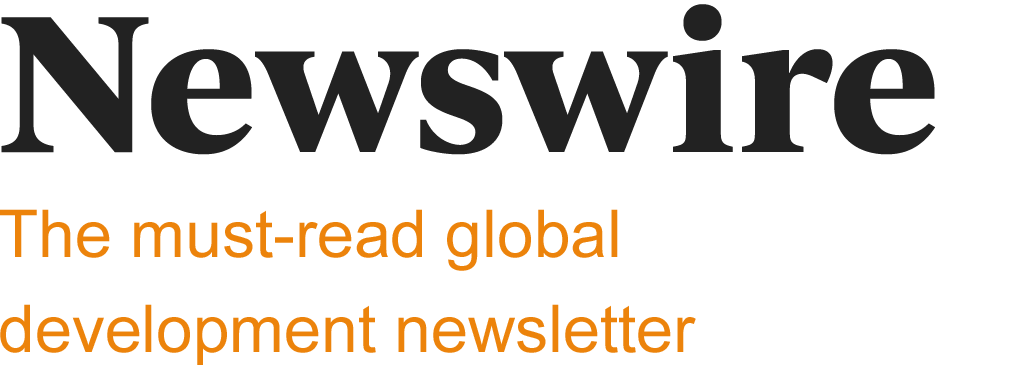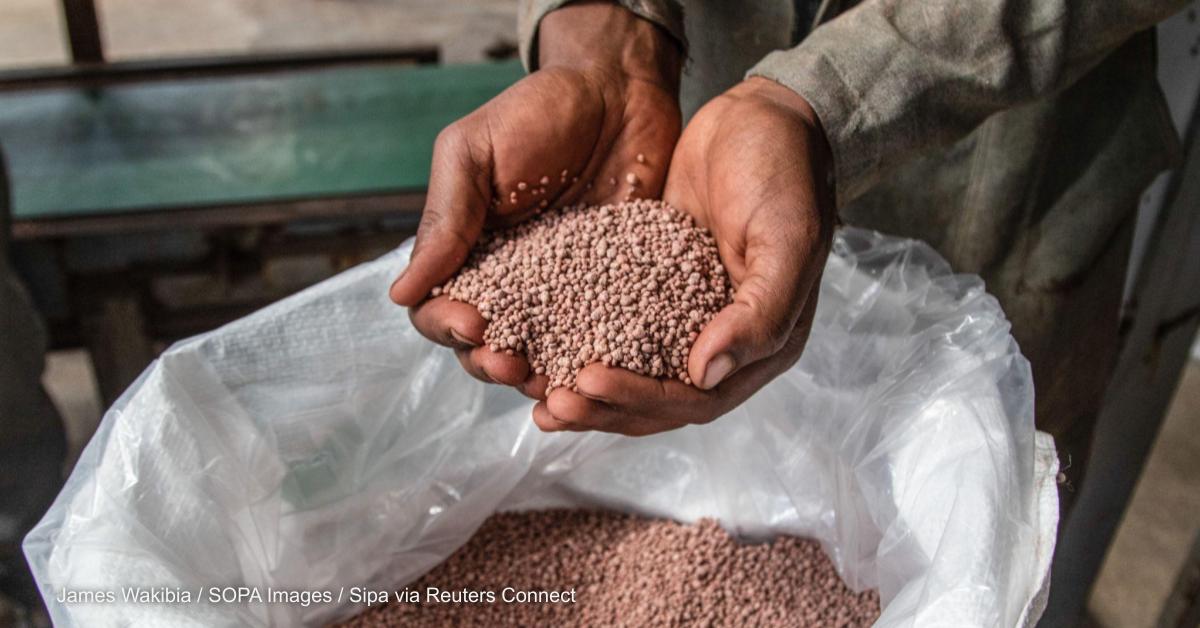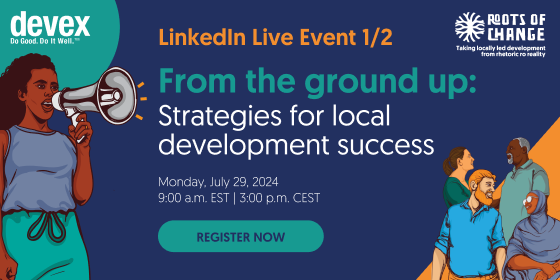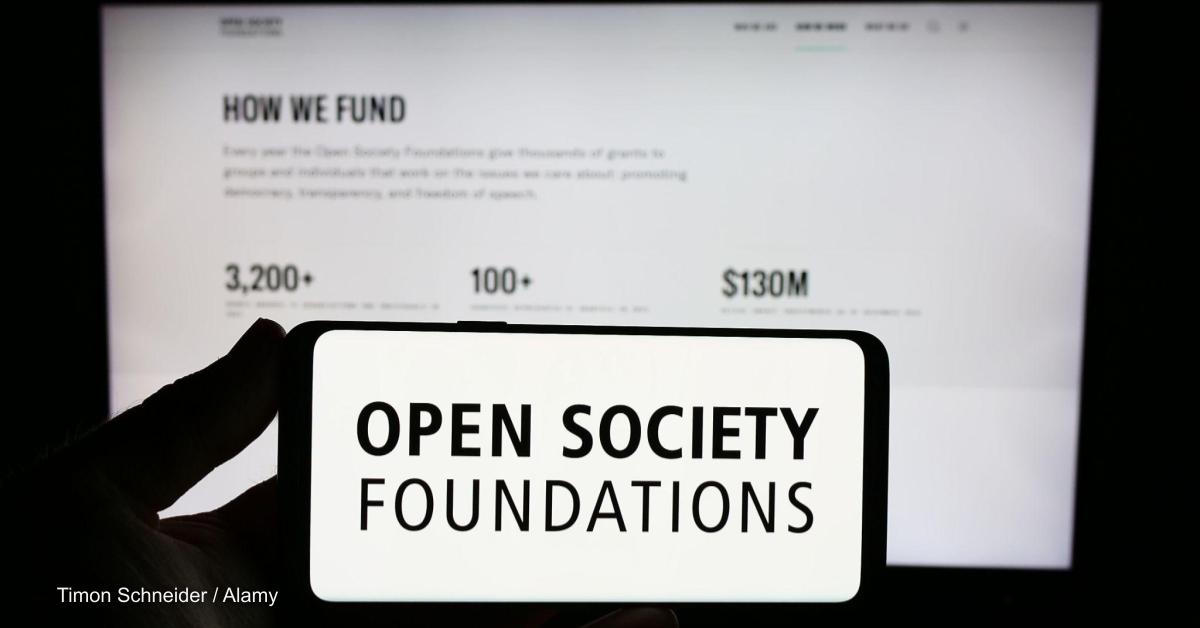|
UK criticized for slow progress untying aid in health research.
|
|
|
|
African leaders committed to tripling fertilizer use on the continent to boost agricultural yields. But achieving the goal will mean substantial investment in a fund that has historically struggled with fundraising. Also in today’s edition: We look at criticisms of the U.K.’s aid policy, and a major new commitment from the Open Society Foundations. 
|
|
Mulch ado about nothing
The Africa Fertilizer Financing Mechanism, a cash-strapped fund designed to boost agricultural productivity across the continent, is getting a much-needed refresh with an ambitious $2 billion fundraising goal. The African Development Bank will revamp the fund as part of its broader mission to triple fertilizer use over the next decade, aiming to "feed Africa" and transform the continent’s agriculture.
African leaders committed to this ambitious target, laid out in the Nairobi Declaration, to improve food production and soil quality amid declining conditions due to overuse and climate change, Devex contributing reporter Sophie Edwards writes. Though the fund was conceived in 2006, it didn’t become operational until 2018 and currently has just $36.5 million. The reform plan, dubbed the Africa Fertilizer Financing Mechanism 2.0, aims to attract billions in new financing and streamline operations. However, reaching this target will be challenging, according to fund coordinator Marie Claire Kalihangabo. “Raising awareness about the importance of fertilizer use to improve agricultural yields in Africa is central to the Africa Fertilizer Financing Mechanism’s mission — not only to help feed Africa, but also to position the continent toward becoming a breadbasket to the world,” she says. Read: Africa needs $2B for a fertilizer fund. Can it raise the money? |
|
Back to basics
“We need to go back into the streets.” It was not the message one expects to hear from a soft-spoken U.N. senior official when asked about the future for international development. But that was Achim Steiner’s answer.
The administrator of the United Nations Development Programme was arguing the greatest problem development advocates face is that the public’s faith in progress has drained away since the Sustainable Development Goals were adopted nearly a decade ago. “The public has become frustrated and, I think, lost confidence in the idea that development actually works,” Steiner told an event hosted by the ODI think tank in London and attended by Devex U.K. Correspondent Rob Merrick, adding that voters appear to have “given up on this wider global agenda.” The solution, he said, was for politicians to bullishly make the case that it is nonsensical to believe development has failed — when 6 billion people are expected to have internet access in 2025, compared with 16 million 30 years ago. Likewise, he argued, voters in high-income nations are suspicious about tackling the climate crisis because they believe “China and India are not doing enough,” when the truth is those two rising giants are leading the green energy transition. Political leaders should embrace this “opportunity” to turn the tide by saying “it's remarkable what the other is doing, why don't we do more because we are pursuing the same objective?” Steiner admitted he might be criticized as “naïve.” |
|
Continental drift
Few have followed relations between the European Union and Africa as closely as Carlos Lopes. Now an honorary professor at the Nelson Mandela School of Public Governance at the University of Cape Town, he has held numerous roles across the U.N. and African Union.
But it’s his stint as AU high representative for partnerships with Europe that he highlights in the new book “The Self-Deception Trap: Exploring the Economic Dimensions of Charity Dependency within Africa-Europe Relations,” released this week. Lopes depicts a “labyrinthine landscape of AU dynamics” allowing “shrewd European actors” to exploit competing African interests during the negotiation of what became the Samoa Agreement between the EU and the 79-member Organisation of African, Caribbean and Pacific States. EU countries’ joint negotiation position on the Samoa deal and the European Commission’s 2020 Strategy for Africa became “an implicit benchmark against which the AU and its member states were expected to react,” he writes. Meanwhile, an African “Strategy for Europe,” developed by Lopes and his team, went nowhere, he argues, because the EU succeeded in undermining his role within the AU. The book looks set to help explain the shaky status quo, which we’ve been covering:
Background reading: How to read Europe's future development vision |
|
Roots of Change: Sponsored by Conrad N. Hilton Foundation
Opinion: We can’t build a better world for refugees without them
Refugee- and migrant-led organizations need systematic ways to bring their expertise and be involved in decision-making that impacts their lives. Ana Karina Garcia of Juntos se Puede weighs in. |
|
Tied in knots
Donor nations have long been urged to “untie aid,” to rip up any requirements for goods and services to be bought from organizations in their own country — but the principle does not appear to be fully understood by the U.K. government.
A new report by U.K. aid watchdog the Independent Commission for Aid Impact criticizes limited progress in giving low- and middle-income countries the freedom to decide how to spend a global health research pot worth almost £1 billion ($1.3 billion) over six years. More worryingly, says my colleague Rob, its inquiry found fuzzy thinking in the U.K.’s Department of Health and Social Care, where officials believed they are untying aid by handing over research funding to institutions in recipient countries — even when those researchers are not allowed “to choose their partners.” “The concepts of ‘aid untying’ and ‘equitable partnerships’ were conflated by interviewees who almost always responded to questions about untying aid with examples of equitable partnerships between UK and LMIC institutions,” the report states. It adds that “for programmes that tie aid to UK researchers, the value for money implications of imposing this limitation do not appear to have been considered,” noting a clash with “the UK’s strategic objective to become an R&D superpower.” Overall, ICAI found the U.K.’s global health aid spending to be “largely effective,” but urged it to focus more on projects with “the greatest impact” and to “untie its aid, giving researchers in low- and middle-income countries the choice of partners from around the world, not only the UK.” |
|
Opening salvo
The Open Society Foundations announced a hefty commitment of $400 million over eight years to support the development of green industrial policies in the global south. The money will help scale up economic development efforts while addressing the climate crisis.
The new Economic and Climate Prosperity program will focus on the Americas, Africa, the Middle East and North Africa region, and Southeast Asia. It will fund initiatives promoting economic prosperity and climate resilience, supporting civil society organizations and independent economic think tanks in countries such as Brazil, Mexico, South Africa, Senegal, Malaysia, and Indonesia. The first grants are expected later this year. This program marks the first major initiative following a two-year organizational reboot at OSF completed earlier this year. Background reading: A look into Open Society Foundations' grantmaking |
|
sponsored announcement
Advancing women-led MSMEs through digital financial inclusion
Women-led MSMEs’ economic power starts with digital financial inclusion. Yet, barriers persist, hindering access to financial services. The amount of research on unlocking their true potential is overwhelming, which is why the Women’s Digital Financial Inclusion Advocacy Hub, representing 82 organizations worldwide, created one holistic resource. Explore nine enablers with examples of how policies, digital financial products, and grassroots actions fuel women entrepreneurs’ resilience and growth. |
|
In other news
South Africa’s new energy minister told climate donors that the country will miss its 2030 emissions targets but reaffirmed its commitment to net zero by 2050. [Reuters] Japanese Prime Minister Fumio Kishida agreed to enhance cooperation with Pacific island leaders, with discussions on climate change and maritime issues expected at the upcoming Pacific Islands Leaders Meeting in Tokyo. [Nikkei Asia] Heavy rains in eastern Afghanistan have killed at least 40 people and injured hundreds, while Taliban control complicates international aid efforts. [DW] 
|
|
Thank you for reading today’s Newswire, edited by Fiona Zublin, copy edited by Nicole Tablizo, and produced by Patricia Esguerra. Have a news tip? Email [email protected].
Forwarded by a friend?
Sign up here to receive the Newswire directly.
|
|
Devex thanks our partners for supporting our newsletters.
Our editorial content remains independent. Interested in partnering with us? Get in touch. |
|
Connect with us:
|








